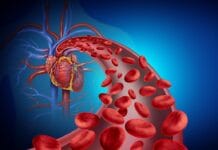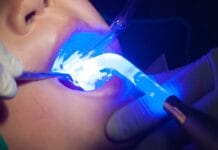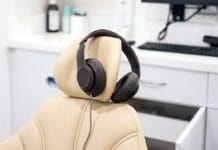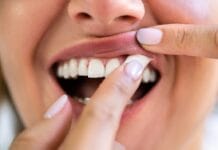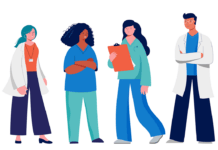Besides late patients, colleagues know that one of my biggest pet peeves as a dental hygienist is when people use the term “cleaning.” “Just a cleaning today, right?” “I just want the normal cleaning.” We have all heard it. It is a tale as old as time. It is incorrect, but why haven’t we stopped it?
Some of you probably think, “Kate, it’s just a technicality.” I understand, but it undermines or undervalues what we do. It puts us in a small box. And we do a lot!
We are dental hygienists, providing prevention and maintenance of many oral conditions and diseases relating to patients’ oral health and whole-body wellness. It is a dental hygiene appointment, an oral hygiene appointment, a preventive care appointment, or a periodontal therapy appointment. Dental hygienists are licensed professionals, oral health providers, and oral health prevention specialists, just to name a few.
Why do we allow being labeled as a tooth scraper or teeth cleaner? If that was the case, then why did we have to complete all those competencies, board exams, hundreds of clinical hours with very specific requirements, rotations, and other certifications?
Standing Up for What Dental Hygienists Do
I tell my patients and students that if a patient only wanted a “cleaning,” they could do that at home with toothbrushing, interdental cleaning, and rinsing – home care, you know! At their hygiene appointment, they experience assessments such as a medical history review, which determines the systemic connections and how their medications and medical condition(s) correlate with their current oral condition, dietary analysis, radiographs, risk assessments, oral cancer screening, and scaling/debriding among other treatments and assessments.
Fortunately, more professional development continuing education courses and speakers are speaking up about what a dental hygienist really does. If you are reading this as a dental professional, you know all the work, dedication, experience, and education you had to go through to get your credentials, licensure, and your job. Why are we allowing ourselves and our profession to be belittled?
We should stand up for ourselves and not let us be pushed into boxes. Another example could be when a perio patient refuses radiographs. That same patient probably would not refuse an X-ray if their leg were broken. Where is the disconnect in dentistry?
A Mindset for Change
To help improve this problem, we can start by educating our patients. We educate on how patients can improve their oral health. We can also help change their mindset about our professional role.
Now, it may take a while for things to change. Change can be difficult, especially with old habits and thinking. When a patient says they want a “cleaning,” I can nonchalantly say, “Yes, your hygiene appointment.” The majority of patients know they are seeing their dental hygienist, so it is not a crazy concept. It is a dental hygiene appointment!
You can discuss it in a friendly, joking manner, too. You could say, “A cleaning… I do a lot more than just a cleaning.”
The Scope of the Dental Hygiene Business
What hygienists do eight-plus times a day is not a one-size-fits-all model. What we do, recommend, and educate is specific to each patient. This may also include what type of procedure code you use.
Although I hate discussing the insurance and the business side as a health care provider, it is a reality in our workplace. Everyone in your schedule tomorrow is not a “regular or normal prophy.” Every patient is different, and so is their appointment to some extent. It would be unethical and below the standard of care if we gave a “regular cleaning” or “prophy” to a patient who presents with periodontitis.
The way I explain it to a patient can be compared to putting a Band-Aid on a broken leg and showing it does not benefit the patient to do that. It is more involved and requires further treatment. A “prophy” is a preventive treatment for a healthy patient, which means a lack of disease, considering bone level, CAL, gingival appearance, oral habits such as smoking, and systemic factors.
We’ve all heard of the statistics from the Centers for Disease Control and Prevention and the American Dental Association that almost half of US adults have some form of periodontal disease.1 Knowing this statistic, there is a high chance you will see a patient with some form of periodontal disease tomorrow, the next day, and the next day.
So, what will you do? Just a cleaning or treatment for their periodontal disease?
It is National Dental Hygiene Month, so give yourself a little extra credit and praise this month. Only other dental hygienists truly know what you have done to get to the place you are now. There were a lot of challenging stepping stones in all our careers. This is why I am very passionate about certain verbiage and education on this subject.
My goal for this article was just to provoke some thought on the perception of the dental hygiene profession. Many patients say that they could never do what we do every day. It is a physical and mental job. This may be small in the scheme of things, but what we do is so important in health care. You can change a person, not just a patient, but a person’s whole life!
Before you leave, check out the Today’s RDH self-study CE courses. All courses are peer-reviewed and non-sponsored to focus solely on high-quality education. Click here now.
Listen to the Today’s RDH Dental Hygiene Podcast Below:
Reference
- Department of Scientific Information, Evidence Synthesis and Translation Research, ADA Science and Research Institute, LLC. (2022, June 9). Periodontitis. American Dental Association. https://www.ada.org/en/resources/research/science-and-research-institute/oral-health-topics/periodontitis



